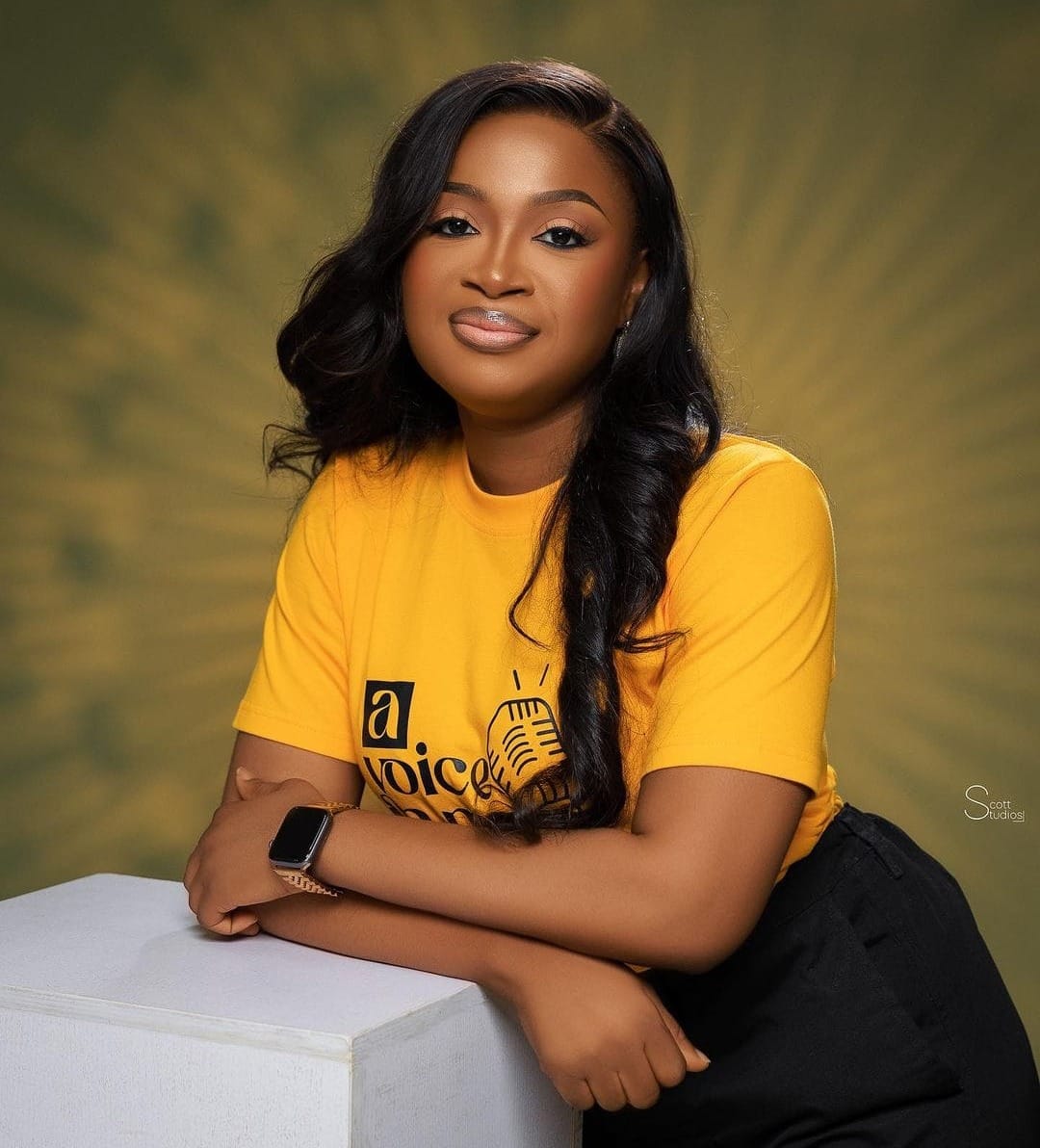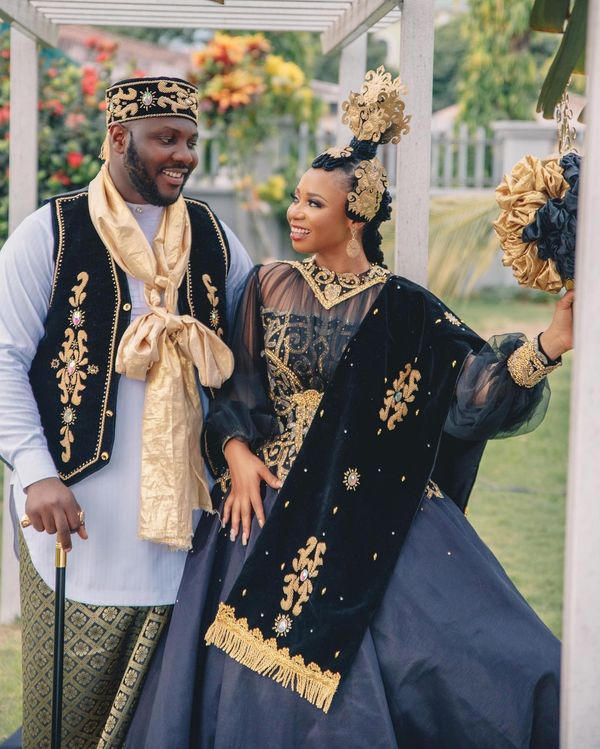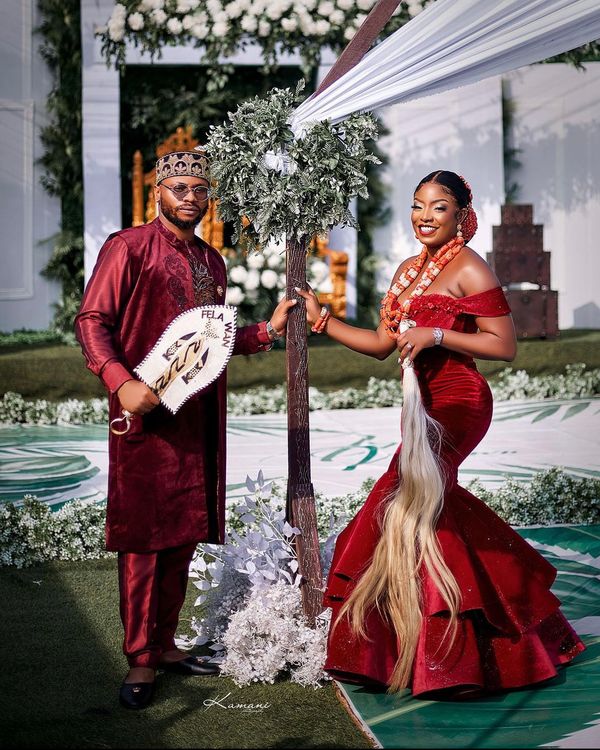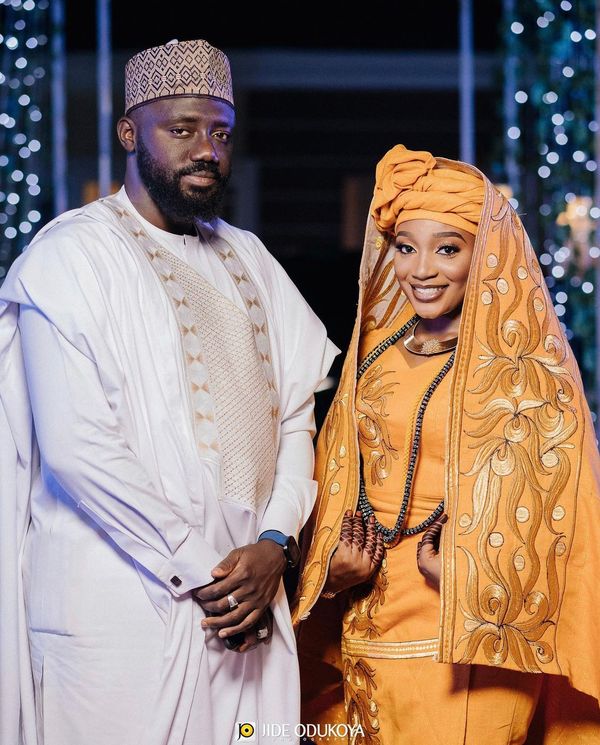
The Alaga's responsibilities encompass a wide range of tasks, including announcing the arrival of the bridal party, facilitating the exchange of gifts “eru iyawo”, leading traditional dances, the popular “Funmilowo o Oko mi”, and narrating the cultural significance behind each step.
Central to the Alaga's role in preserving cultural heritage and ensuring that traditions are respectfully observed. With her commanding presence, eloquence, and deep understanding of the different Yoruba traditions, the Alaga plays a crucial role in creating a memorable and meaningful wedding experience for the couple and their family.
We love hearing from professionals for wedding tips and tricks, so we reached out to Damilola The Alaga (her), a Lagos-based Yoruba traditional wedding anchor “Alaga”, to get the gist on the nitty-gritty of being an Alaga, its challenges and tips to prepare to enjoy your engagement ceremony. Read on for her top advice, including how to navigate the industry as a young Alaga and how to make the most of your traditional ceremony with your Alaga.
What inspired you to pursue a career in traditional wedding anchoring?
It was my sister's wedding about a decade ago, and I saw this young lady who had contacted to compose the wedding was just enjoying herself singing, sweetly giving instructions and I was just really curious to know more about what she was doing as it was my first time experiencing a Traditional Wedding. I would say I was more curious than inspired. Look where my curiosity led me to. Lol

What do you enjoy the most about being an Alaga?
The singing part! I enjoy singing and that's why I sing more than I talk on the job.
Have you anchored ceremonies for cultures outside your predominant culture? And how did that feel? Were there any difficulties?
Yes, We learn everyday and it's always eye-opening. I love to learn about other cultures and I ask a lot of questions, especially from the parents, just to be sure we are on the same page. There are no two jobs that are alike, even the ones we are used to. I just always prepare my mind for every job. If it comes easy and if it doesn't, I believe it's a learning curve.
How do you handle high-pressure situations, such as time constraints or technical difficulties during a wedding ceremony?
Hmmmmn! I ask whoever is in charge to change the brief we had and to hand the decision over to me. I try as much as possible to handle it with grace while still delivering an excellent performance.
What does a typical day look like being an Alaga and how do you prepare for an event?
Looking good is very important as an Alaga so we start by making sure we look good, rehearsing and preparing for the job would have been done days before the event. Also, we make sure we get to our events on time.
What skills do you believe are most important for a traditional wedding anchor (Alaga), and how do you demonstrate them in your work?
Patience: You will sometimes be pushed to the wall but you need to be as patient as possible.
Being time-conscious: I pride myself on being a great time manager. You can't be carried away and not do the most important things.
Singing: This will mostly be done and it needs to be done excellently.
How do you ensure the wedding ceremony flows smoothly and stays true to tradition?
We have a template we have been following which is what we learnt from the elders in the industry. We add some of our own spices while still staying true to tradition.
Are you married? How has this impacted your job as an Alaga and have you experienced any stereotypes?
Not yet but very soon by the Grace of God, I have tried as much as possible to carry myself well, dress modestly, speak excellently, and also relate with older people very well so it's not very obvious. If you ask 7 out of 10 people, they would most likely tell you DTA is married.

How do you navigate different Yoruba cultures in anchoring diverse ceremonies?
I research and also ask them questions, I don't act like I know it all. You don't want to be singing and seeing people shaking their heads in disagreement. I try as much as possible to be 95 percent correct if not 100.
What advice would you give couples who are eager to enjoy their engagement ceremony and would like to incorporate diverse traditional elements into their ceremony and are unsure of how to?
I would advise that they carry their parents and loved ones along, they should make plans that everyone is aware of and also be open-minded.
Lastly, describe your vision for the future of traditional wedding ceremonies and how you plan to contribute to preserving and evolving these cultural traditions as an Alaga?
I believe it will soon become a course in a higher institution. I try my best to do things the right way as a young compere and train the upcoming Alagas in the art and business in such a way that when they go out there, the elders would be so proud.









